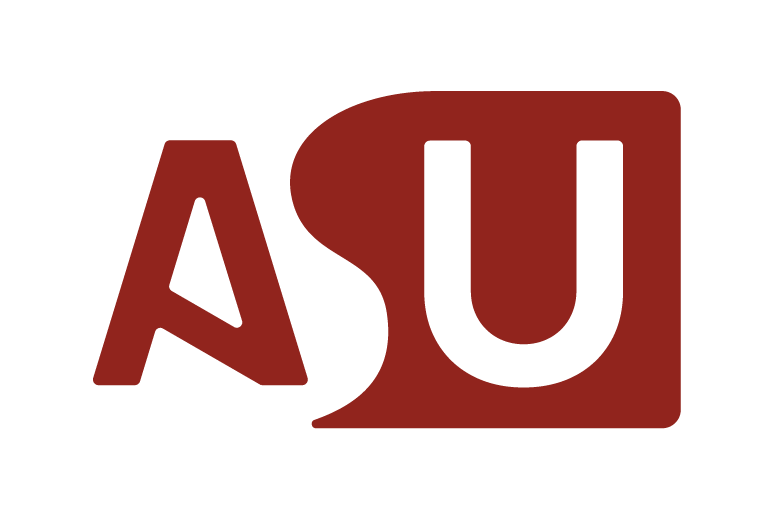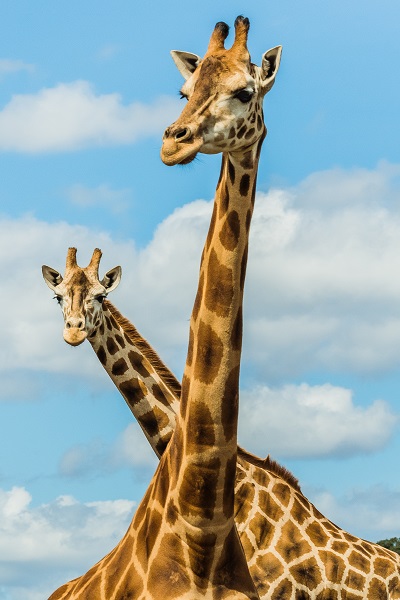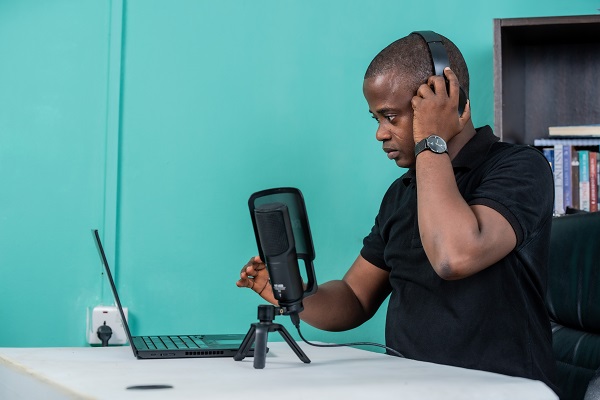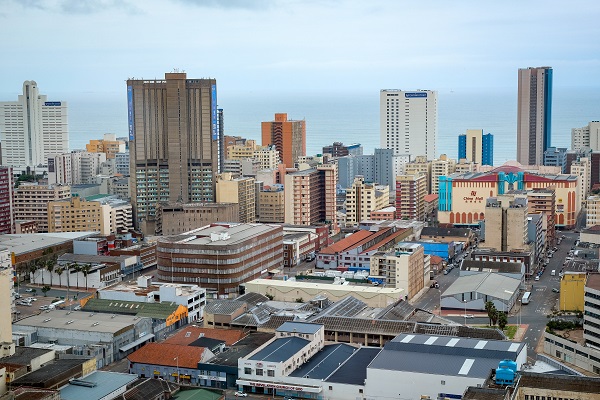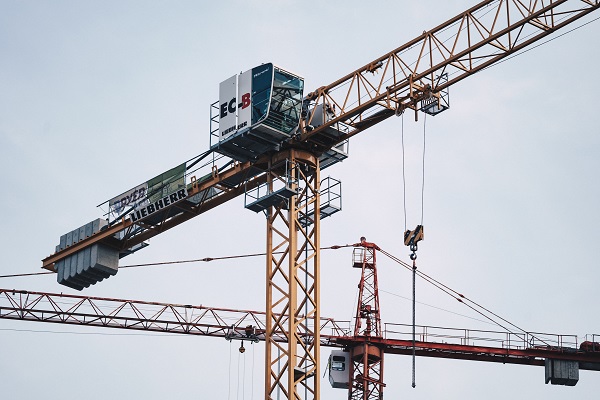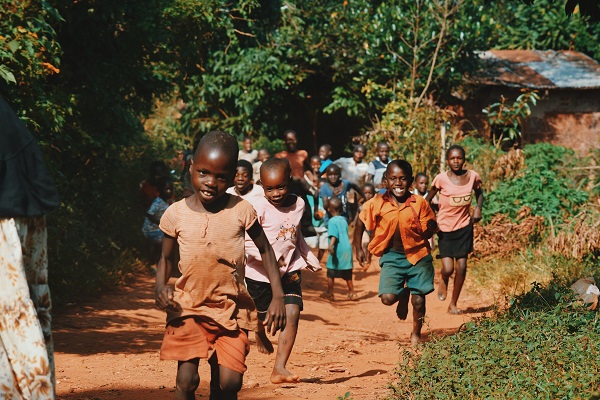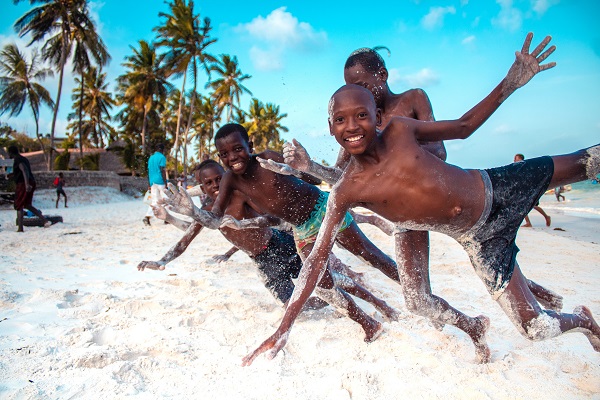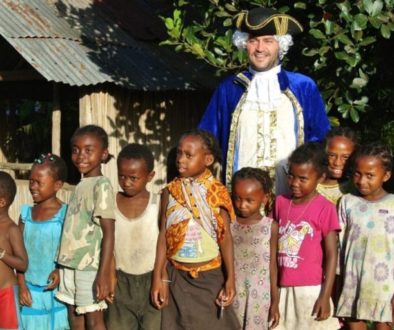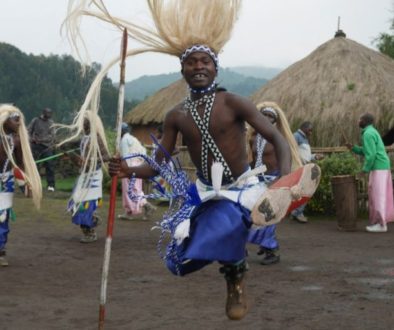Life in Africa Through the Eyes of a European
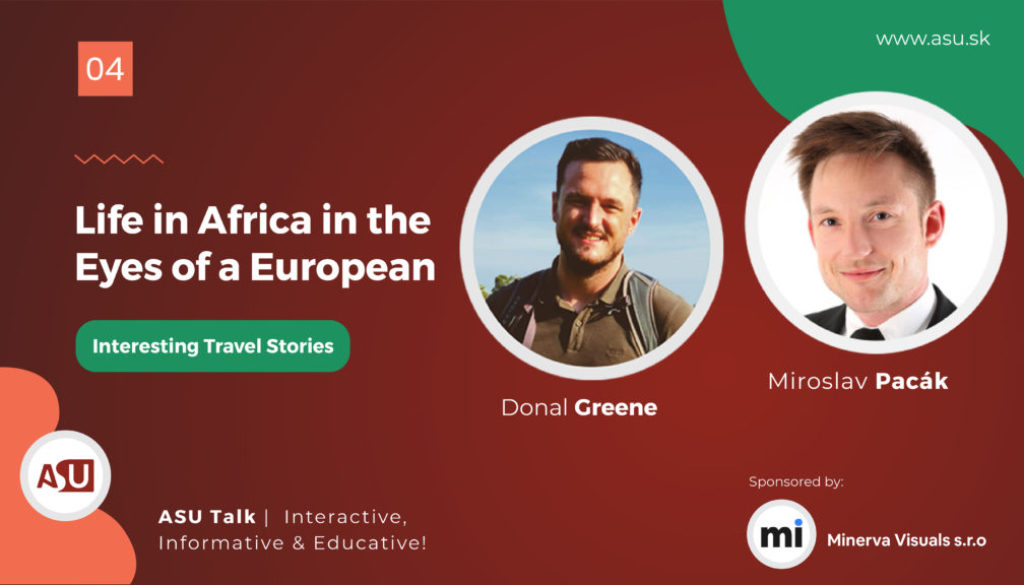
How could it be if ASU Talk didn’t start a new year of 2021 with fresh, first-hand and exclusive discussion? We kept up the pace and this time interviewed two charismatic gentlemen who share a few commonalities with one another. By the virtue of them browsing all around the globe, they gained a valuable personal as well as professional experiences closely related to Africa, which became their resource of exciting, sometimes unexpected or surprisingly positive and enriching moments they will hardly forget. To the surprise of some, being a white man in Africa doesn’t really predestine you to be treated any differently, they almost uniformly claimed. Even though the dynamics of black-white stereotypization haven’t completely disappeared, they have little to no importance in the progressing and increasingly interconnected African continent.
Huge Pineapples and terrorist attack in Abuja
Donal Greene´s first encounter with Africa was on a business trip to Abuja, Nigeria in 2018. His later travels to about 10 African countries in south, central and north Africa gave him a nice overview of the culture and diversity of the continent especially when it comes to food and natural products. For a moment he starts to dream about the deliciousness and quality of African fruits:
“A pineapple is three times bigger there. And the taste! It is so much better than our fruits and vegetables! Probably because it is produced in a more natural way.” Yet, apart from amazing natural products and cousine, there is also a darker side of the continent. Besides other issues, many African countries face problems with identity recognition of their citizens.“There are about 5 million of Africans with no legal identity at the moment, which precludes them from financial participation, social systems or obtaining government benefits.
Two out of three kids are born without a birth certificate in Africa.” As a specialist working in a biometric identity management technology sector, he participated on the event ID for Africa in Abuja, a very business and government- oriented, purpose-built capital city with a lot of traffic and buzz around. “During our stay, the residence complex was attacked by a terrorist group. We came to the lobby and saw all the chaos around. Luckily nothing happened to us,” he remarks calmly. However, Donal doesn’t see Africa solely through the prism of this experience. “Besides this one negative experience, seeing other places I have to say that the whole experience overall was overwhelmingly positive.”
Mzungu in Africa and what a westerner hardly knows
Despite the humble conditions I was living in, overall I felt more free than in Europe, probably because of the simplicity of life.
Miroslav Pacák
Miro on the other hand, knew African mentality and culture through his Kenyan friends during the time when he lived in London. When his foot eventually landed on an African ground in 2011, he already knew what to expect. “Generally speaking, people in Europe still think that all Africans live in huts, without any technology or electricity. There are challenges like electric blackouts or undeveloped infrastructure but at the same time there are huge modern metropolas just as anywhere in the world. Misconceptions people have stem from the lack of information. One time I overheard one European standing on the hotel deck saying ´Oh I didn’t expect to have such a great wifi connection here!´ That kind of sums it up”, says Miro matter-of-factly, adding that Kenya has changed drastically since 2011.
“I was really shocked about the boost of the middle class and increasing spending power.” With the key telecommunication players on the Kenyan market, people were provided with technological advantages that are hardly found in Europe such as digital wallet or digitalized health insurance system. “In order to boost up the economy especially in the rural areas, Kenya introduced a system of financial transactions through phone without the need for internet connection or ATMs, which are hard to find in villages.”
Africa is a place of extremes, on one hand you see communities struggling to make a living while on the other hand, you walk a few kilometres more and you see big mansions with watchdogs, maids, security.
Miroslav Pacák
Donal ads that the voting mechanisms, banking sector or e-government are also areas where Africa is taking lead, yet it is not a question of Africa being more developed from a technological point of view. “I would rather say that Africans are more open to development and definitely much faster to adopt new technologies as they come in. In Europe there is more conservatism towards adopting new things. We’ve worked on many projects with African banks and they reacted much more flexibly in comparison to European banks. Even though connection is one of the key blockers in Africa, most countries don’t have decent 3G, not even talking about 4G, but it’s a matter of a couple of years for a catalytic change to happen.”
Win-win situation
I was in the elevator, clicked on the 5th floor button and the voice record spoke to me in Chinese. This demonstrates how much China is involved in Rwanda.
Donal Greene
Yet the significant rise of Africa cannot be ascribed to the efforts of African countries solely. Increasing interest of global power like China, USA, France, Germany, Turkey or India in Africa contributed to great economic and technological boost, yet it is perceived by some as some sort of a modern colonialism. “China’s approach to countries like Rwanda is to come with a stimulus or investment package, they offer to build hundreds of km of highways or hospitals, but their long-term goal is to gain control over a lot of the country’s critical infrastructure.
The purpose is to build their influence over the part of the country and get some economic benefit from this. In Rwanda you can see such examples everywhere. China has sent thousands of its citizens to start their businesses there which they have done successfully. Pretty much every new building there is China-managed.” Another example of Chinese increasing influence over certain regions is a beautiful coastline in Ghana. Significant part of its management was given over to China which aspires to build a huge theme park there.
There is also Russia which has significant interest in Africa, the US is battling for as much influence as possible too along with European countries like France and Germany. “So there is an economic battle going on in Africa,” Donal says, “there is a positive aspect to it but there’s also a possibility of having increasingly more influence over these African countries.”
I don’t think corruption is an African problem. I think it’s a problem of human nature
Miroslav Pacák
This raises questions to what extent foreign influences affect business and daily experience of Miro and Donal. They both state it is not easier or more difficult to do business in Africa, it’s simply different. “For someone like me going there with not much experience with setting up business there represents a challenge of its own. There are things that are much easier than in Europe. When my colleague and I were to establish our company in Uganda, we were surprised how smooth the process was with digital signatures and simplified electronic processes at hand. On the other hand there are often these middle men who are trying to get advantage from you. Some see it as a corruption or simply how the things are being done. But for me as someone who is doing small to medium business corruption wouldn’t be a major blocker, it’s just about knowing what to expect and how to deal with the situation.”
Miro shares a similar approach by saying that you have to know nuances of local ways of doing things, keeping in mind the possible danger of fraud, cheat or scam :“If you don’t get lured into shady situations and fall into a trap of a fantasy that seems to be too good to be true, then you are fine. If you remember Panama papers though, these things are happening on a governmental level and represent a global issue as it happens everywhere in the world. I don’t think corruption is an African problem. I think it’s a problem of human nature.”
What do they have that we don’t?
It is indeed difficult to generalize what Africa is like, how people are and what is specific for them the same way it’s tricky to find a common feature of Europeans. Yet there is a binding phenomena that transcends almost all racial, religious, linguistic or ethnic differences.
“There is this thing of Ubuntu,” Donal says, “which is the feeling of community spirit, the philosophy that an individual is not as important as the group. And this isn’t an abstract term, this is actually how people live. They are extremely welcoming, open, friendly and if you are a foreigner in most of the cases they are really quick to help you.”
According to Miro, we should appreciate much more the possibilities and opportunities we have and the life we live, instead of complaining about minor things. “When I was in Bratislava my neighbours used to lament about small things, things that don’t matter that much. Be happy, you have clean water, you have a place to live, you have a job. If you don’t you get an unemployment benefit. But if you lose your job in Africa, well good luck to you.” With an agreeing tone Donal adds that Europe has much more things to learn from Africa than Africa to learn from Europe.
Watch the whole conversation below.
